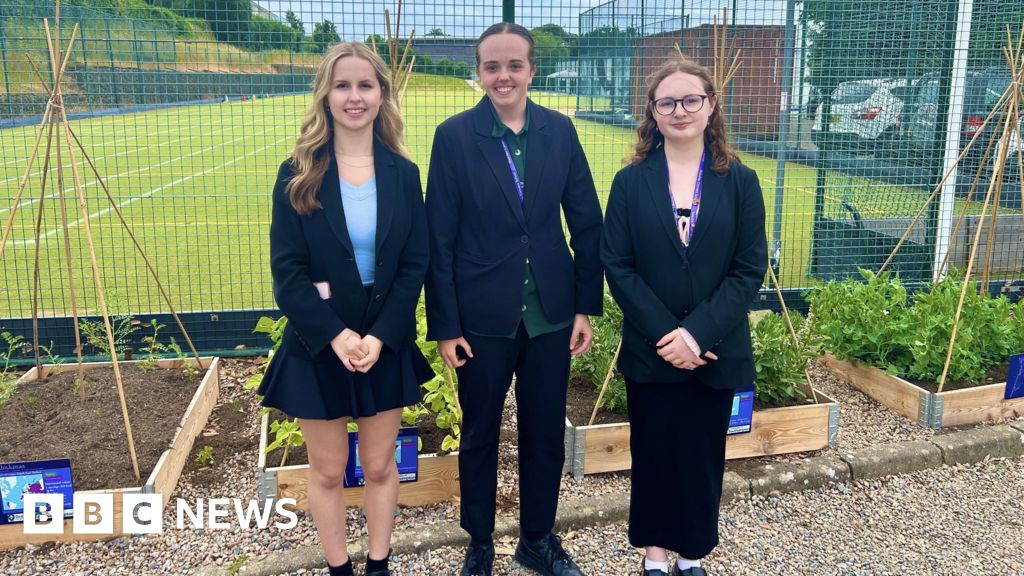The schoolchildren of Beaulieu Convent School in Jersey are conducting experiments to determine if legumes such as chickpeas, lentils, and lablab beans can be successfully grown across the British Isles. This project is part of a larger study led by the University of Southampton aimed at addressing food security issues related to climate change impacting traditional crops like wheat and maize. Dr. Mark Chapman, the project’s leader, emphasized the need for alternative crops that can thrive in the changing climate.
The participating schools, including Beaulieu Convent School, are logging their data on a website to contribute to the research. Dr. Chapman believes that legumes from warmer regions could potentially be cultivated in the British Isles as temperatures continue to rise. Students like Rayne, 17, and Chloe, 17, are enthusiastic about the project’s potential impact on the future of food production. Rayne sees lablab as a sustainable food source due to its drought resistance, while Chloe hopes the research will provide valuable insights for future generations.
The project also involves home economics students who participated in taste-tests to explore various bean-based dishes. Amber and Lisa, both 13, shared that their favorite dish was the bean-brownie. Jon Hale, the head of biology at the school, highlighted the importance of students engaging with this cutting-edge scientific research as it sparks their interest, motivation, and aspirations in the field. The ultimate goal of the project is to generate a map identifying the best growing locations for these alternative crops across the British Isles.
